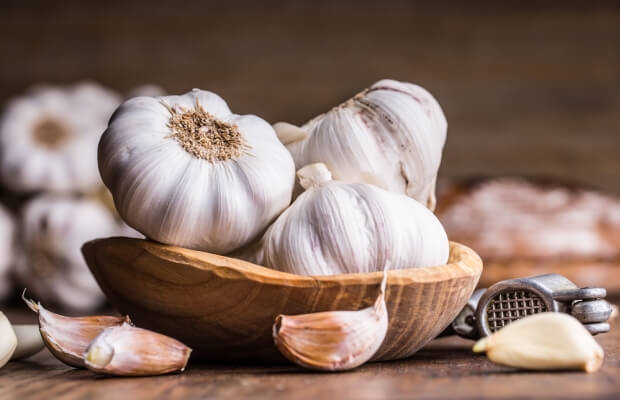You may have heard that some herbs and spices have been linked to heart and circulatory health benefits.
Garlic has been reported to help improve blood pressure and cholesterol levels, while turmeric is thought to have anti-inflammatory effects due to a substance called curcumin that is found in it. Cinnamon has also been linked to improvements in blood sugar levels.
However, while there is some research into these links, it’s not good enough quality to translate into specific dietary recommendations for heart and circulatory health. We can’t say for certain that using a particular herb or spice in our cooking, or taking it as a supplement, will have a particular effect on our health. What we can say is that eating more of these plant-based foods could increase the diversity within our diets, helping to improve our gut health.
By including herbs and spices in your cooking you’ll make your meals more interesting. Having food that tastes great makes it easier to stick to your healthy eating plan and adding more flavour in this way will also help you to add less salt and sugar.
Want to get fit and healthy?
Sign up to our fortnightly Heart Matters newsletter to receive healthy recipes, new activity ideas, and expert tips for managing your health. Joining is free and takes two minutes.
I’d like to sign-up
Can supplements interact with my medication?
While most herbs and spices used in cooking are fine to use, some herbal supplements may have the potential to interact with your medications. For instance, turmeric supplements may interact with blood thinners (anticoagulants) such as warfarin. Check with your doctor or pharmacist to make sure it's safe to take these supplements with your medications.
Meet the expert
Victoria Taylor is a registered dietitian with 20 years’ experience. Her work for the NHS focused on weight management and community programmes for the prevention of cardiovascular disease. At British Heart Foundation, she advises on diet and nutrition.
What to read next...









.png?rev=cc724f5ff2f8467e9c71f34b89a5b496&hash=0BDA7FABE0C6E2A8BBE690BE6CEEBFB2)

